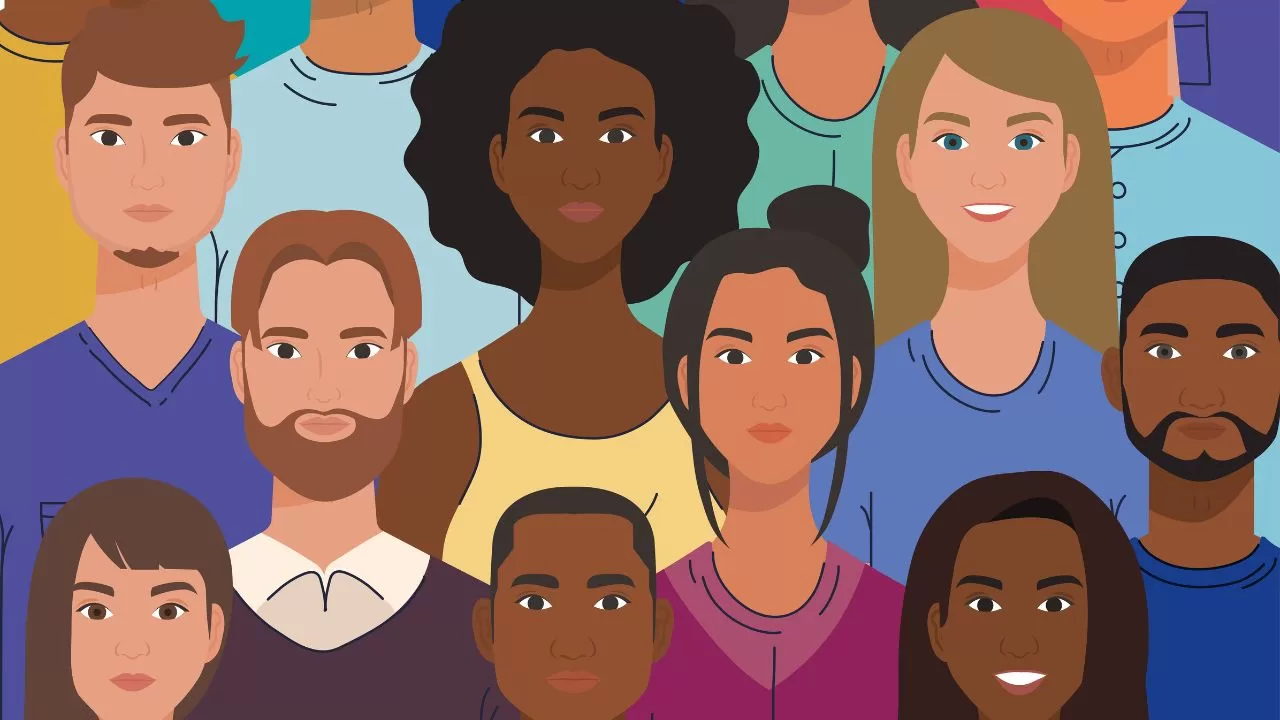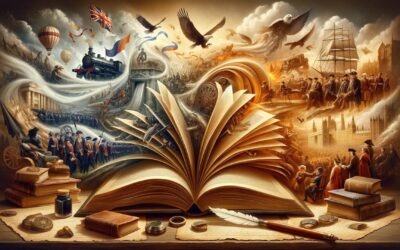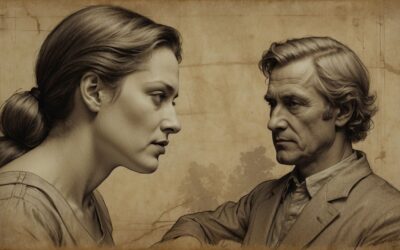The sun had long dipped below the horizon, and the town of Abelsworth was silent, save for the whispering winds and the rhythmic beats of a storyteller’s drum. The townspeople, young and old, sat huddled around a blazing fire, their faces illuminated by the flickering flames. For generations, this nightly ritual brought them together, where tales spun by gifted orators would meld history, imagination, and cultural values into a captivating tapestry of words. Tonight’s tale was about to begin.
The town of Abelsworth could be any place, from ancient Athens to contemporary New York. Across ages and continents, literature, in all its diverse forms, has always mirrored the society from which it sprang. It’s not just an art form; it’s a chronicle, a reflection, a dialogue, and often, a prophecy.
Ancient Echoes
In ancient Greece, the epic tales of Homer, the “Iliad” and the “Odyssey”, weren’t just mesmerizing narratives of heroes and gods. They were the embodiment of Greek virtues – bravery, loyalty, wisdom, and restraint. The tragic plays of Sophocles and Euripides showcased the consequences of hubris and the fragility of human existence, reflecting societal beliefs and norms.
Move eastward to the vast subcontinent of India, and the Mahabharata unfolds—a gargantuan epic that touches upon dharma (duty), karma (action), and the complexities of human relationships. It wasn’t just a story; it was a guidebook to life, echoing the spiritual and philosophical ethos of ancient India.
Renaissance Revelations
Fast forward to Renaissance Europe. As societies transformed, so did the literature. Shakespeare wasn’t merely a playwright; he was a keen observer of the human condition. His plays captured the societal shifts of the time—the questioning of monarchy in “Hamlet”, the consequences of unchecked ambition in “Macbeth”, or the nuances of love and relationships in “Romeo and Juliet”.
Modern Mirrors
Jump into the 20th century. The world saw wars, revolutions, technological marvels, and unprecedented societal changes. Literature responded in kind. F. Scott Fitzgerald’s “The Great Gatsby” spotlighted the opulence and decay of the American Dream. Chinua Achebe’s “Things Fall Apart” revealed the ravages of colonialism on traditional African societies.
Authors like Orwell, Atwood, and Huxley used dystopian settings to critique their contemporary societies and warn of potential futures. Their works, while fictional, were grounded in the cultural and political realities of their time.
Literature as a Catalyst
But literature doesn’t just reflect society; it often shapes it. Uncle Tom’s Cabin by Harriet Beecher Stowe illuminated the horrors of slavery, influencing public perception and fueling the abolitionist movement. In the 20th century, literature became a tool for feminists, civil rights activists, and countless others to challenge societal norms and demand change.
The Dual Role
The beauty of literature is in its duality. It offers both a mirror and a mold. It echoes societal values, beliefs, and concerns, but it also nudges society to evolve, rethink, and reform. This interplay is ceaseless and ever-evolving.
21st Century Chronicles
Today, as we grapple with globalization, digital revolution, and societal re-evaluations, literature continues to play its role. The surge of post-colonial literature, LGBTQ+ narratives, and works highlighting mental health issues or environmental concerns showcase the shifting sands of our cultural values.
The Digital Transformation
Even as the medium of literature transforms from ink and paper to digital pixels, its essence remains unchanged. Blogs, podcasts, and even tweets become modern avenues for the age-old tradition of storytelling, echoing the collective consciousness of a global society.
Back in Abelsworth, as the storyteller’s tale came to an end, the audience sat in rapt silence for a moment, absorbing the story’s lessons. Each one would carry a piece of the tale with them, a reflection of their shared values and beliefs.
Literature, whether oral or written, ancient or modern, remains a powerful force—a bridge between the individual and society, the past and the present, the real and the imagined. It is, and will always be, the echoing heartbeat of human civilization.
Keywords
- Orators: Speakers, especially ones who are skilled in public speaking.
- Tapestry: A complex or rich work of art or series; originally, a thick woven fabric with pictures or designs, often used as a wall decoration.
- Ethos: The characteristic spirit or beliefs of a community, people, or system.
- Hubris: Excessive pride or self-confidence, often leading to one’s downfall.
- Dystopian: Relating to or denoting an imagined state or society where there is great suffering or injustice.
- Duality: The quality or state of having a dual nature or character.
- Abolitionist: A person who supports the abolition of a practice or institution, especially of slavery.
- Globalization: The process by which businesses or other organizations develop international influence or start operating on an international scale.
- Post-colonial: Relating to the period after a country or region has become independent from its colonizer.
- Collective consciousness: The set of shared beliefs, ideas, and moral attitudes which operate as a unifying force within society.
Key Takeaways
- Literature reflects the values, beliefs, and concerns of the society from which it originates.
- Ancient tales, like those from Greece and India, were not just stories but embodied the values and spiritual ethos of their civilizations.
- Shakespeare’s works captured societal shifts during the Renaissance, reflecting on monarchy, ambition, and relationships.
- 20th-century literature responded to societal changes, addressing themes like the American Dream, colonialism, and political realities.
- Literature can act as a catalyst for societal change, as seen in works like “Uncle Tom’s Cabin.”
- Literature’s essence remains unchanged, even as its mediums evolve with technology.
- Modern literature continues to echo societal transformations, such as post-colonial narratives and environmental concerns.
- Literature is both a reflection and a shaper of societal values and beliefs.
Check out the Story of Literature Article Series
The Story of Literature: Delving into Humanity’s Timeless Narratives (Featured Article)
From Campfire Tales to Digital Screens: The Evolution of Storytelling
Drama through Time: From Ancient Shadows to Modern Stages
The Mesmerizing Power of Novels: A Deep Dive into Our Fascination with Long Narratives
Echoes of Society: The Deep Interplay between Literature and Cultural Values
Navigating the Digital Revolution: How Literature Evolves in a Tech-driven World
Universality in Literature: Uniting Hearts and Minds Across Cultures












0 Comments